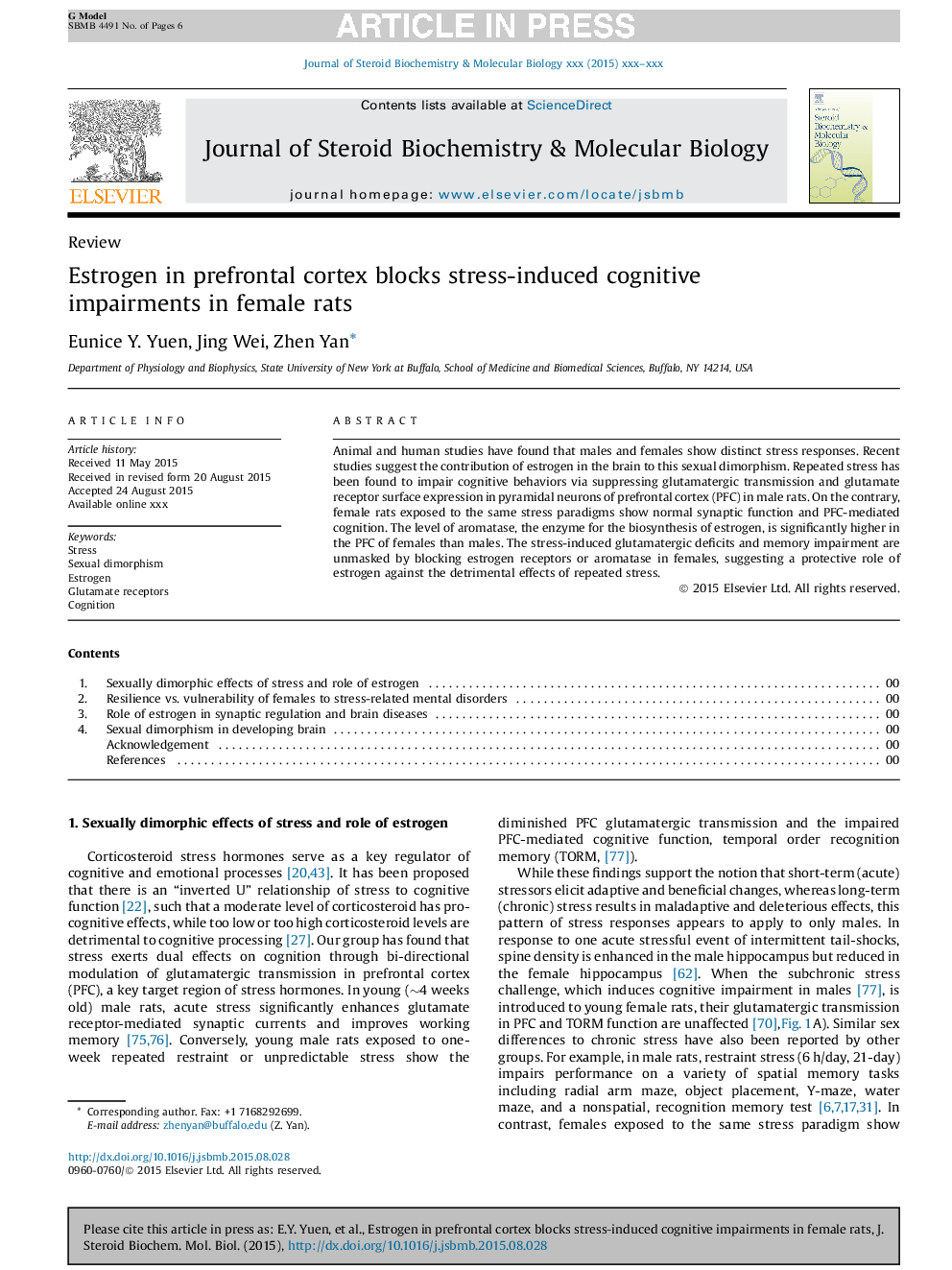| Article ID | Journal | Published Year | Pages | File Type |
|---|---|---|---|---|
| 8338072 | The Journal of Steroid Biochemistry and Molecular Biology | 2016 | 6 Pages |
Abstract
Animal and human studies have found that males and females show distinct stress responses. Recent studies suggest the contribution of estrogen in the brain to this sexual dimorphism. Repeated stress has been found to impair cognitive behaviors via suppressing glutamatergic transmission and glutamate receptor surface expression in pyramidal neurons of prefrontal cortex (PFC) in male rats. On the contrary, female rats exposed to the same stress paradigms show normal synaptic function and PFC-mediated cognition. The level of aromatase, the enzyme for the biosynthesis of estrogen, is significantly higher in the PFC of females than males. The stress-induced glutamatergic deficits and memory impairment are unmasked by blocking estrogen receptors or aromatase in females, suggesting a protective role of estrogen against the detrimental effects of repeated stress.
Related Topics
Life Sciences
Biochemistry, Genetics and Molecular Biology
Biochemistry
Authors
Eunice Y. Yuen, Jing Wei, Zhen Yan,
